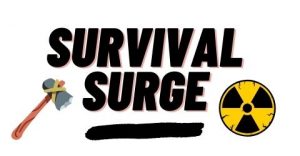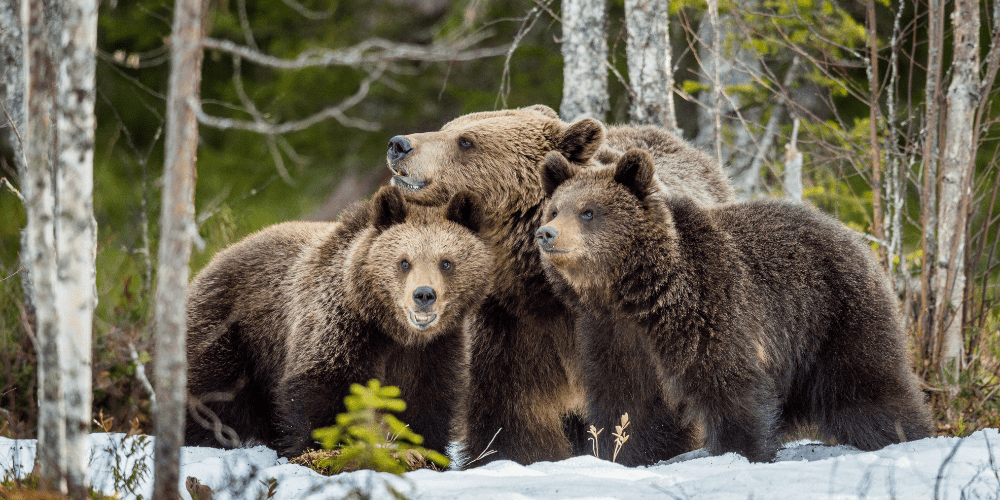The bears that attack tents are not the cute teddy bear kind; they’re grizzly bears and can be deadly.
While it’s uncommon, there have been a few fatal bear attacks [1]. Although, in most cases, bears hover around your tent for a while but will eventually move on.
With that being said, there are some ways to prevent bear attacks, which we will discuss in this article. After all, it’s always best to be prepared, right!?
Will A Tent Protect You From Bear Attacks?
The answer to this question is a gray area. Bears are some of the strongest animals, so they can easily destroy a tent with you inside.
So, no, a tent doesn’t protect you if a bear decides to attack. However, it does provide you with a barrier that conceals your location.
So, do bears attack tents?
If you haven’t got food stored in your tent, the chance of a bear attacking it is very low.
A tent becomes dangerous if it’s set up to attract hungry bears, which we discuss below.
The Different Types Of Bears
Black Bears
Black bears are the smallest of the three types of bears in North America, and they’re also the most common. They get their name from their black fur, which can range in color from light brown to almost black.
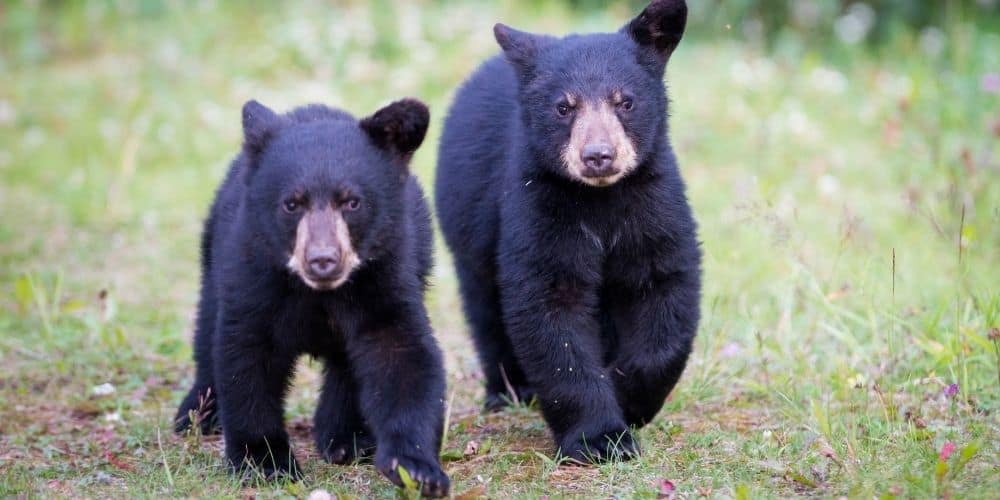
A black bear can weigh anywhere from 100 to 400 pounds, and they usually stand about 2-3 feet tall at the shoulder.
Brown/Grizzly Bears
A brown bear is another type of bear usually found in areas of North America. Brown bears are one of two species that can stand up to 10 feet tall [2], and they usually weigh anywhere from 200 to 1000 pounds.
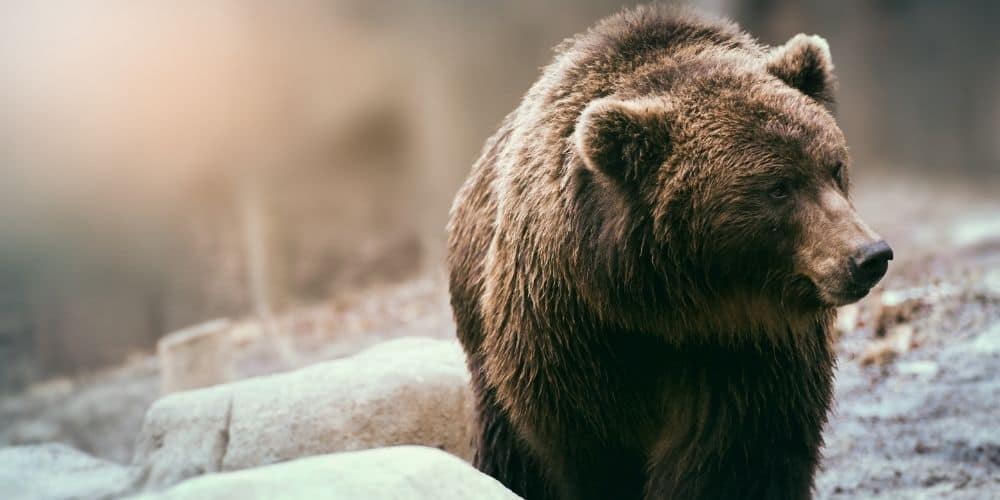
Brown bears are also referred to as grizzly bears because their fur is usually lighter than the fur of black bears, giving them a ‘grizzled’ appearance.
Polar Bears
Polar bears are by far the largest bear species alive today, and they have an almost entirely ice-white color because it helps them blend in during their winter months to surprise prey.
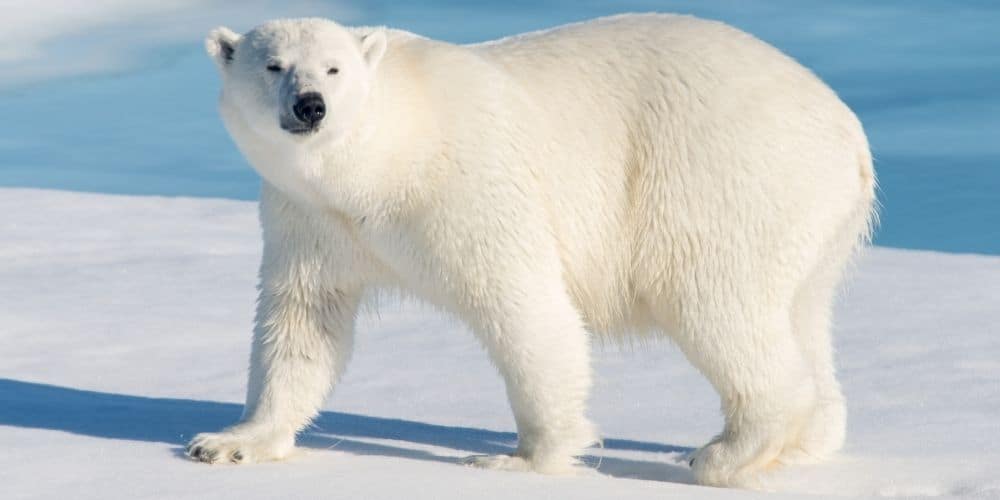
Polar bears primarily eat seals – which is their main source of fat – but they’ll also eat other animals, including birds, walruses, and whales.
How To Prevent A Bear Attack: 4 Proven Strategies
Bear Spray
Bear spray is a crucial tool to have when camping or hiking in bear country because it’s the best way to deter a bear from attacking. When sprayed in the face of a bear, it will cause temporary blindness, coughing, and nausea, which will hopefully give you enough time to escape.
Set Up Your Tent In The Correct Location
Did you know that bears can smell for up to 3 miles? While you may think you’re safe, a bear could be going to your tent.
The best way to prevent this is by setting up your campsite triangularly. Setting up your tent this way ensures that bears stay far enough away from your tent.
So how’s it done?
When setting up a campsite, put your tent at the top of the triangle and your kitchen and food at the other two ends. Check out the image below to see an illustration.
(Insert Image)
Because the food is far enough away, most bears will stay away from your tent.
Bear Proof Containers Are A Must
Bear-proof containers are an essential component to any trip in bear country. Bears are known for their ability to get into just about anything, but they can’t get into a container designed specifically to hold them at bay.
If you have food with you when you’re camping, it should always be stored in a bear-proof container. Food attracts bears, so they’ll often stop by your site before moving on.
Do The Damn Dishes!
After eating a meal, clean all the plastic plates and cutlery immediately. Leaving them around the campsite or in your tent will attract bears.
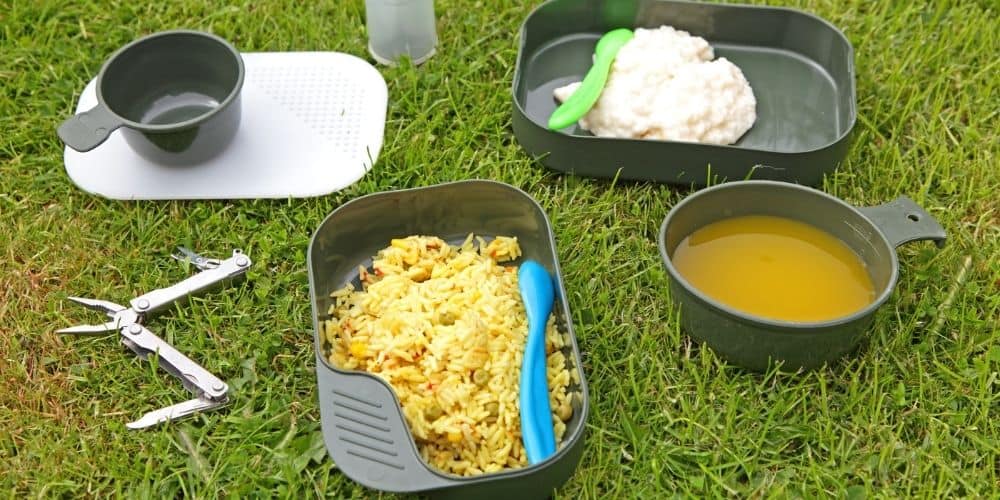
If you’ve got kids, teach them why it’s crucial to clean their plates and cutlery after eating.
Bear Encounters: What Should You Do?
If you encounter a bear that becomes aggressive and looks like it’s going to charge, use the tips below to prevent a fatal attack.
Make Yourself Bigger
The best way to scare a bear away is by making yourself seem as big and intimidating as possible. Start in a standing position, then spread your arms and legs wide open, and lift up the front of your coat or sweatshirt.
This will look like you’re trying to cover yourself, which will make you appear larger. Stay in this position until you feel safe enough to walk away without turning back around.
Start throwing stuff at the bear if it gets too close to you. Throw rocks or sticks at its head or face, rip out branches from trees, hit it with sticks- anything that will distract the bear long enough to let you escape unscathed.
If any people are accompanying you, get them to start throwing stuff.
Slowly Back Away
When a bear is aggressive, running away may only incite the bear to give chase, leading to an attack.
Bears can run much faster than humans, so you’re better off slowly backing away while making yourself look as big and intimidating as possible.
If you have any friends or family with you, get them to help you scare the bear away by slowly backing away and making noise.
Use Bear Spray (Last Resort)
Bear spray should only be used as a last resort during a bear attack. If the bear is getting too close, start spraying it in the face. The bear will hopefully back away, giving you enough time to escape.
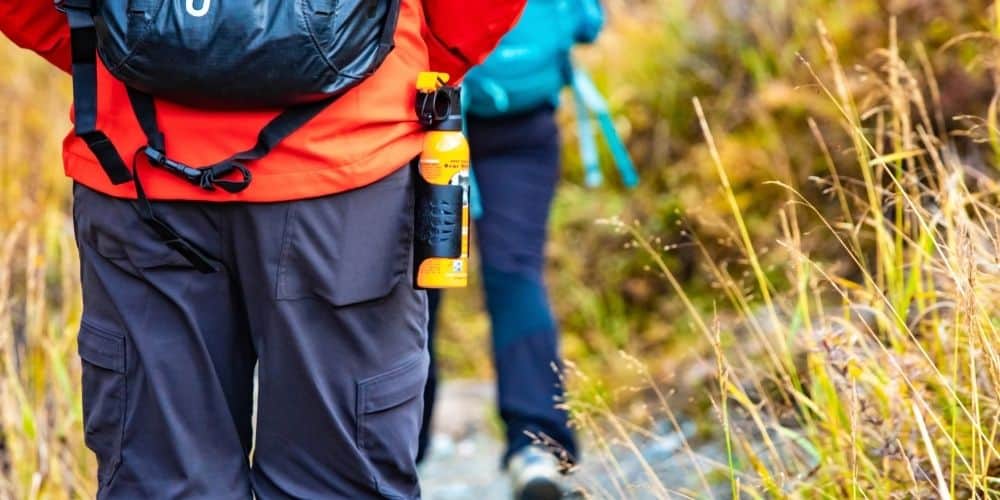
However, many people are hesitant when it comes to bear spray. They think that it will harm the bear. Luckily, that’s not the case.
It will cause the bear to experience inflammation of the mouth, nose, eyes, throat, and lungs, but not for long.
No Eye Contact
Looking a bear in the eyes during an attack can be seen as a sign of aggression, which may provoke the bear to attack.
Instead, try to keep your head down and avoid eye contact. This will show the bear that you’re not a threat, and hopefully, it will back off.
Before We Part
Bear safety shouldn’t be overlooked, especially if you’re traveling in an area prone to attacks. To recap, carry bear spray, conceal human food in bear canisters, and set up your campsite in a triangle pattern.
If you follow the rules listed above, you shouldn’t have to result to using bear spray.
